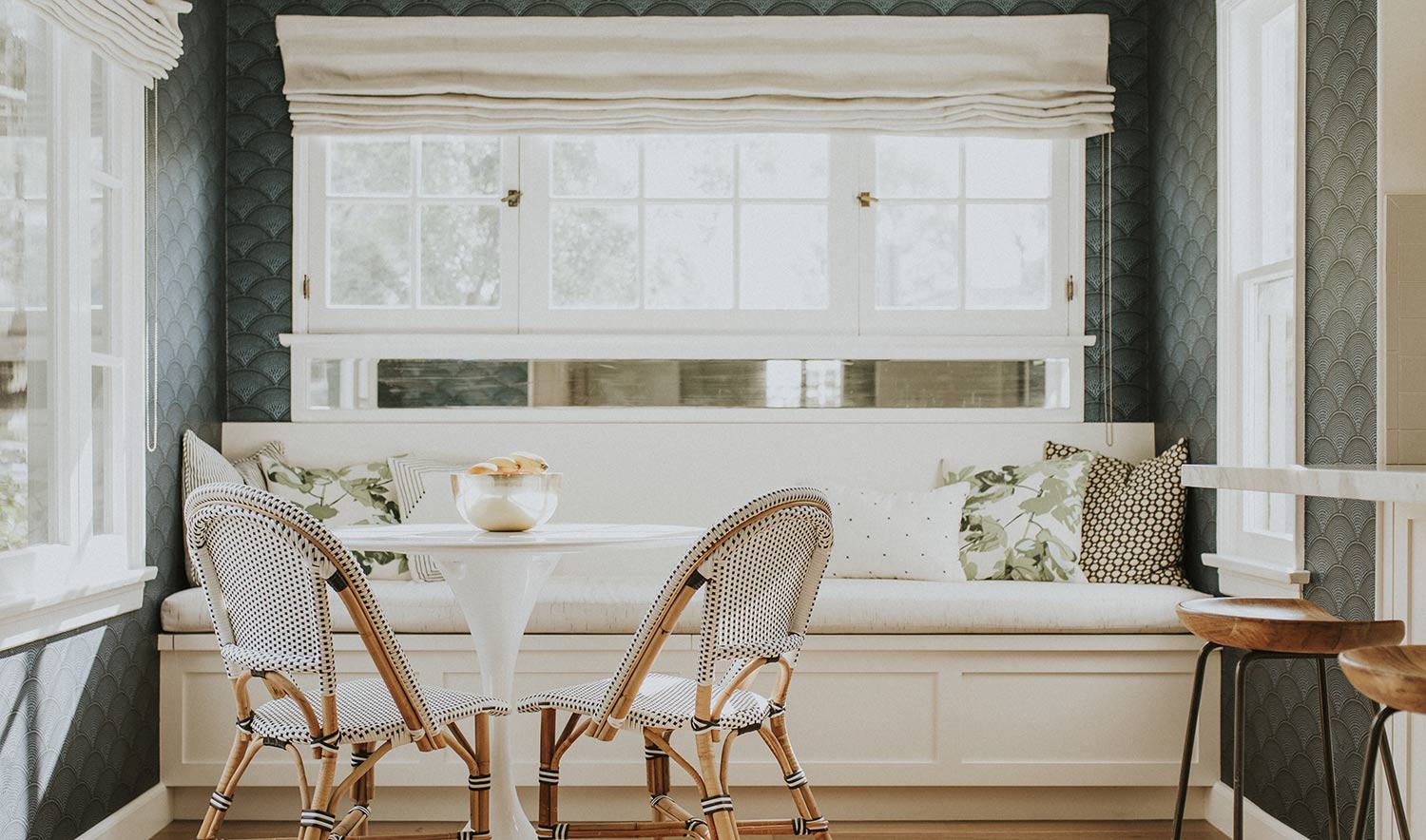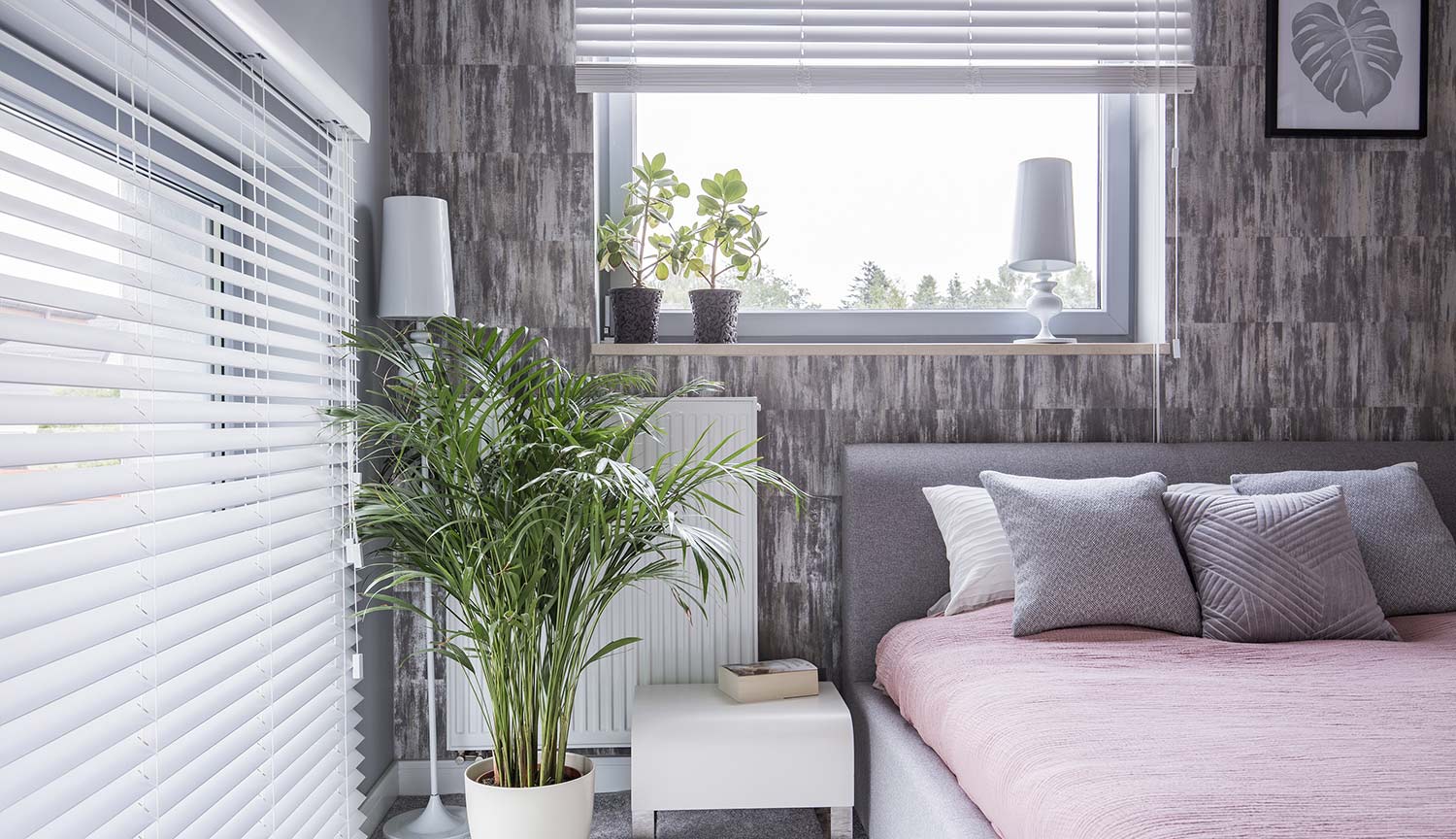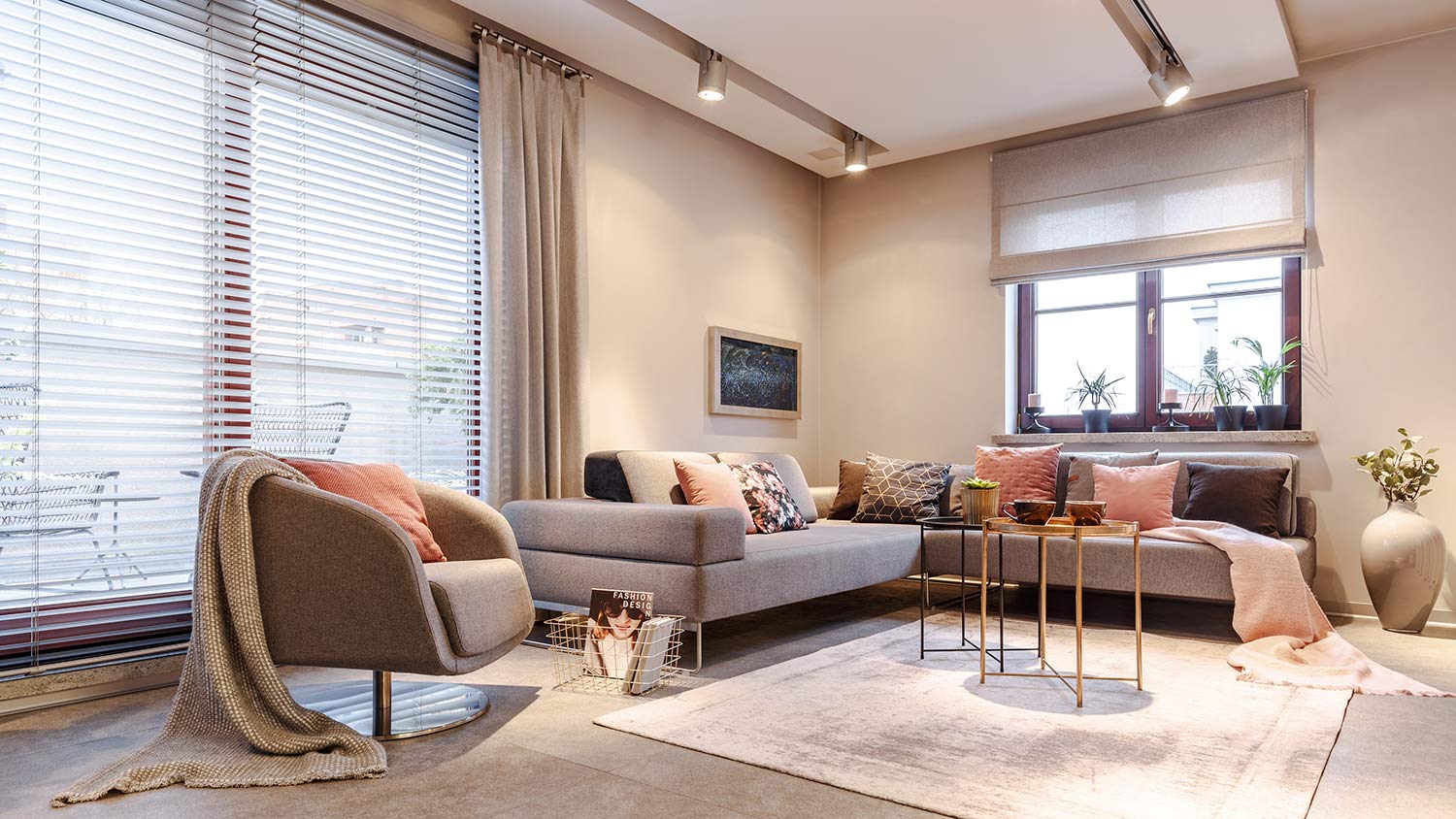Curtains vs. Blinds: Which Is Better for Your Home?
Shedding light on curtains vs. blinds for your windows


Navigating the world of window treatments can feel like learning a foreign language. But once you’ve narrowed in on curtains or blinds, it can be challenging to make the final call. We’re breaking down the seven most important factors at play when deciding which one deserves a place on your walls.
1. Appearance
If curtains and blinds walked the red carpet, who would win best dressed?
Curtains
Curtains offer infinite ways to dress your windows with design interest, as well as filter light. Available in various opacity levels from the sheerest of sheers to heavy silks and velvets, curtains can warm or brighten a room, says interior designer Dana Sands of Dana Sands Style. Sands also says customization is one of the best things about curtains.
But even if your budget doesn’t allow for custom drapes, ready-made curtains can create a light-filtering softness or add just the right amount of drama by introducing patterns, colors, and textures.
You can add distinctive flavor with your choice of hardware as well.
Popular types of curtains include:
Blackout curtains
Grommet
Lace
Sheer or semi-sheer
Single panel or panel pair
Tab-top
Window scarf
Blinds

Sands sees overall design trends moving toward subtlety and minimalism. “Blinds and shades are a minimalist’s dream. Along with creating a sleek and uncluttered design vibe, there are many affordable options,” says Sands.
There are numerous choices in this category, including:
Honeycomb or cellular shades
Horizontal metal blinds
Estate shutters
Roman shades
Sheer shadings
Solar shades
Wood and faux wood blinds
Woven woods
Best choice for appearance: Blinds
If you follow the design trends, blinds are winning window treatments for your home, especially if you are trying to achieve a modern vibe.
2. Light Control
Seeing the light is not so simple when it comes to choosing curtains vs. blinds.
Curtains
Curtains have beautiful ways to filter light and allow light to beam through windows. They can also effectively blackout lights. Choose a light sheer to allow light into a room you want to brighten. If you want to keep light out to get a good night’s sleep, opt for room darkening or blackout curtains. Control the light in your room by choosing the right opacity. Typical thickness levels include:
Sheer
Semi-sheer
Semi-opaque
Opaque or room darkening
Blackout
Blinds
Blinds have a myriad of methods to control light. You can use slats, lift cords, and wands to control the amount of light you let into your room. You can also completely darken a room with blackout shades.
Best choice for light control: Tie
While blinds offer several ways to control light, if you select a slatted version, some light can poke through even when the blinds are completely closed. Closed curtains, especially blackout curtains, are great for blocking light.
3. Options and Customization
Do you like lots of choices or just a few? We have a few ideas of how you can narrow the field and see what’s right for you.
Curtains
When selecting curtains, Sands suggests you ask yourself a few questions. Are you interested in framing the window with stationary panels, or do you want the curtain to be able to draw across the window? Do you want a light filtering look, or would you like to be able to darken the room? These decisions will impact your purchase in choosing to line the drapery and what kind of lining you will need, if any.
Blinds
When choosing blinds or shades, there are a plethora of custom options.
Top-down/bottom-up shades can be opened at the top and closed at the bottom to achieve your preferred level of light and privacy.
Cordless lift systems allow you to operate your blinds sans cords.
Dual shade systems contain two roller shades allowing you to both filter and block light.
Skylight blinds help you manage light from your skylight
Motorized blinds allow you to control light in hard-to-reach windows
Best choice for options and customization: Blinds
While there are many styles, fabrics, and types of curtains and blinds on the market today, blinds have the added advantage of advanced technologies to help control light, room temperature, and ambiance.
4. Price
There’s a wide range of price points for curtains and blinds. You need to consider the cost of materials, labor (if you are having custom treatments created), hardware, and installation for both options.
Curtains
Ready-made curtains generally cost between $20 and $300. Custom curtains run between $250 and $1,500 per panel. A bulk of the expense for curtains depends on the price of fabric, labor, and other items such as:
Rods
Rings
Valences
Cornice
Tie-backs
Finials
Blinds
When purchasing blinds and shades, prices range between $110 and $320 per blind and vary by product and manufacturer. You also have to factor in the cost to install blinds, which averages $700, unless you decide to DIY it. You’ll find plenty of budget-friendly options like aluminum Venetian, faux wood, and semi-sheer, as well as luxury products, including smart and Roman shades.
Best choice for affordability: Tie
Both curtains and blinds have cost-effective and luxe options. The final price will depend on the materials, including fabric and hardware, and labor and installation costs.

Materials for blinds are just $6 to $90 per set. Installation can run between $140 to $400, or you can save money by installing them yourself. Blinds are a wise investment that add ambiance and light filtering to your space.
5. Resale Value
Let’s look at ROI for curtains and blinds.
Curtains
Custom curtains are highly personal, according to Sands. When selling your home, they may not contribute much to the value
Blinds
In many cases, custom-fit blinds and shades, when professionally installed in neutral tones, can help you sell your property when the time comes. “Buyers will be able to cross that off the list of necessary purchases to make it move-in ready,” says Sands.
Best choice for when you are selling your home: Blinds
6. Room Darkening
Areas like home theatres and bedrooms sometimes need room-darkening options.
Curtains
While curtains and draperies can reflect your personal preferences, they require a blackout lining if you want to darken the room.
Blinds
Most room-darkening shades are as lightweight as their light-filtering counterparts.
Best choice room for room darkening: A combination!

The combo offers flexibility so you can illuminate your space, whether you’re watching your favorite Netflix show, reading the daily news, or planning a romantic evening. By outfitting your room with curtains and blinds, you can add color, texture, and visual interest to an otherwise boring wall space.
Maintenance
You’re a busy person, so let’s see which option is going to make life simple.
Curtains
Curtains are made of fabrics that, if not cleaned regularly, can stain, get moldy or dusty, or even be eaten by moths. Most curtains will need to be professionally dry-cleaned, vacuumed, or washed and ironed routinely to keep them fresh.
Blinds
A dusting with a microfiber cloth can keep many blinds clean. It is essential to keep blinds clean as the light coming through the window will illuminate any dust.
Best choice for maintenance: Blinds
And The Winner Is...Blinds
Blinds and curtains both have many pros and a few cons. Curtains offer many options for design, colors, and textures. They also filter light beautifully and are fabulous for creating an elevated design aesthetic and expressing your personality.
Blinds have the above-mentioned benefits and a whole lot more. Energy-efficient with budget-friendly options, blinds are durable and easy to clean. They also can be motorized and offer various ways to control light. While you may opt for room darkening curtains so the kids can get a good night’s sleep, motorized blinds may be the best fit for your contemporary living room.
Tallying the score, the duo tied for price, but blinds won for appearance, light control, options and customization, resale value, room darkening, and maintenance. If we were to outfit our windows, we would pull back the curtain and opt for blinds.





- 9 Types of Blinds for Windows: How to Choose the Best Window Treatment
- How to Clean Blinds and Remove Dust Without Damaging Them
- How to Remove Window Blinds—Plus, Tips to Keep Them Looking Brand New
- How to Fix Vertical Blinds With 6 Simple Tips
- How to Measure for Blinds to Get the Perfect Fit
- 6 Window Treatments to Help Block out Light
- 5 of the Best Child-Safe Window Coverings to Help Protect Your Little Ones
- Light Filtering vs. Room Darkening Window Treatments—Which Is Best For Your Home?
- 5 Beautiful Treatments for Tall Windows
- How to Decorate a Bedroom: 8 Tips to Get a Room You’ll Love















